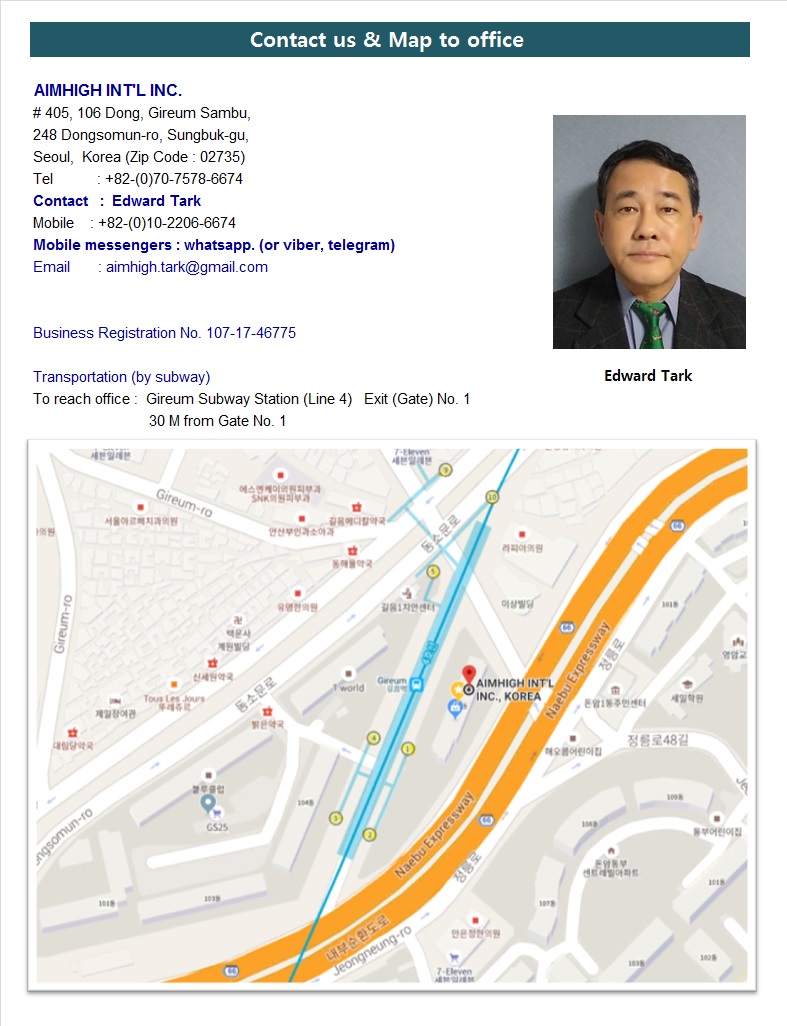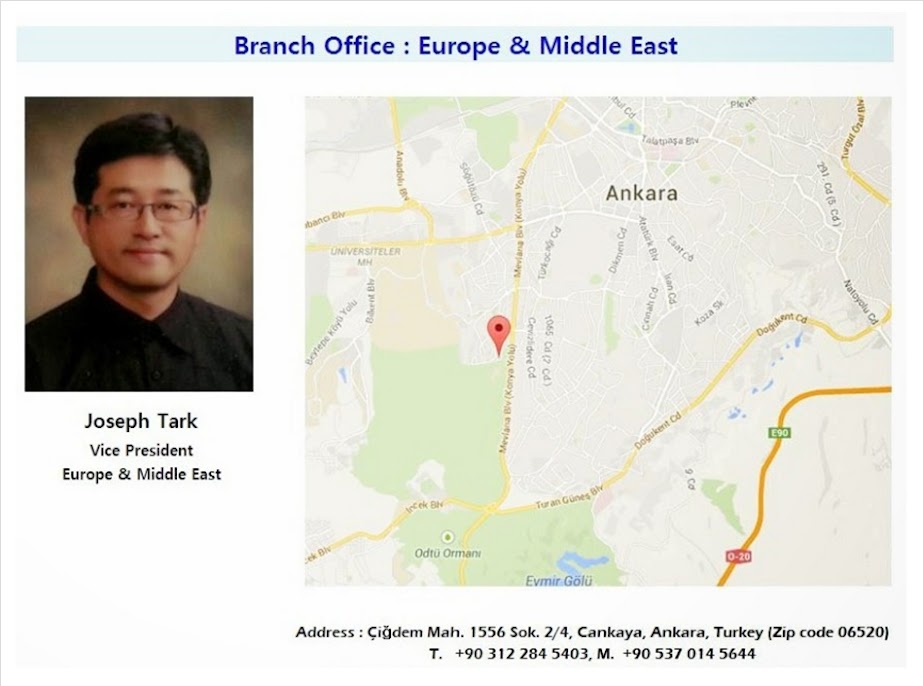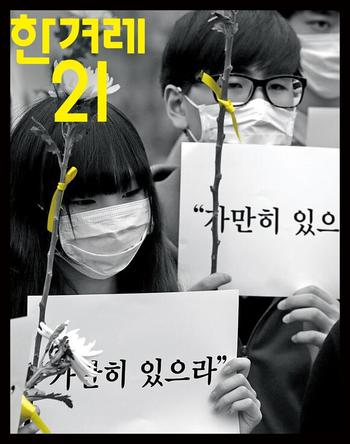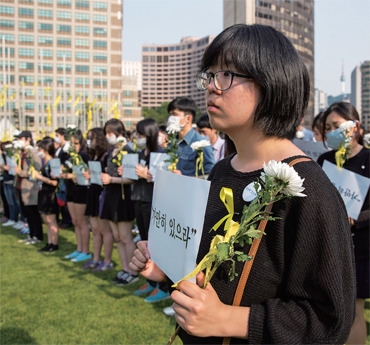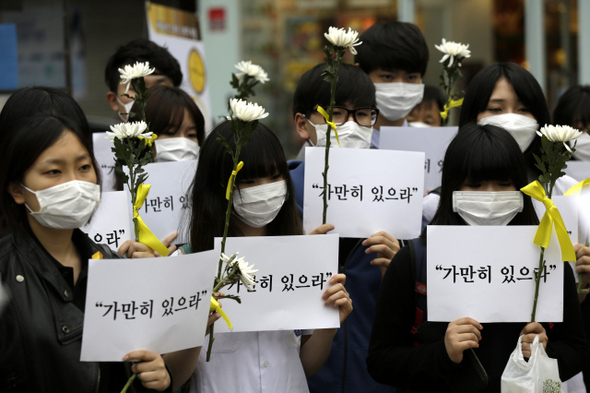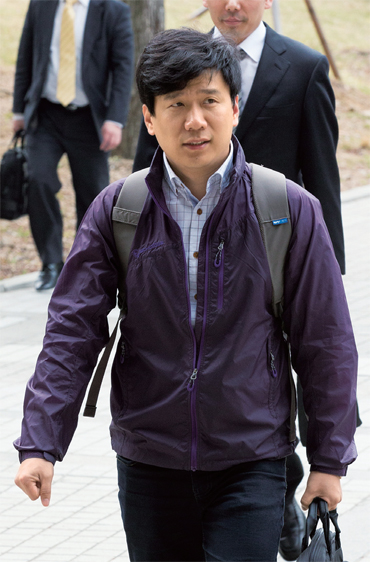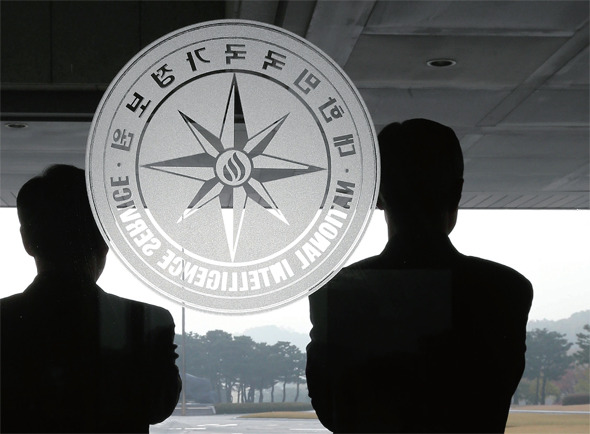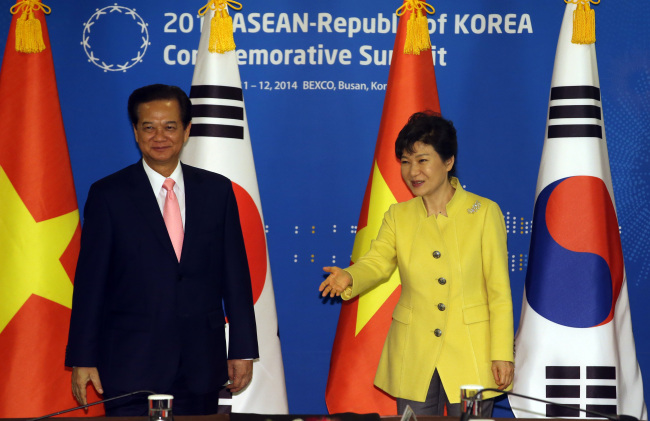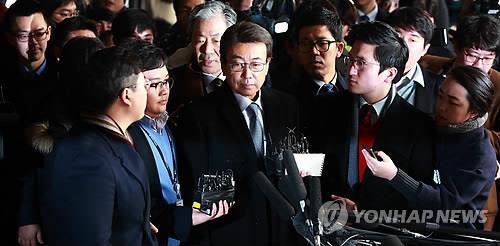 Park Geun-Hye addresses both Houses of Parliament on November 5, 2013. CARL COURT/AFP/Getty Images
When President Park Geun-hye and her government called on South Korea’s Constitutional Court to take an unprecedented step and disband a small leftist political party week, the motive seemed fairly clear.
The third-largest party in the country, the United Progressive Party seeks reconciliation with the north, or is at least more nationalist in posture, and makes for a natural rival to Park’s conservative Saenuri Party, which defends the legacy of South Korean dictators like Park’s father, President Park Chung-hee, and takes a hostile stance toward the North.
But Park’s government has come under fire in recent months over reports sympathetic agents in South Korea’s National Intelligence Service systematically attacked her domestic opponents online ahead of last December’s election, quite the scandal for her young administration. So why raise the specter of turning back the clock on democracy given her political opponents’ (already well-trod) habit of labeling her a dictator in waiting?
It may be that Park would prefer to do battle with a (relatively minor) left-wing party, a convenient foil, rather than concentrate on a legal case that still poses trouble to her political future. National politics are polarized, but by holding up the specter of armed Socialist insurrection (a dubious charge being thrown at the United Progressive Party), she is playing it safe and appealing to the broad center of the electorate. The only problem of course, is that national politics has essentially been stuck in place since her inauguration, and young voters in particular are not keen on what seems like an attempt to turn back the clock on political freedoms.
Park clearly would prefer not to alienate an entire generation of South Koreans, and one way to win back their favor may be to terrify them; just as leftist leaders in South America (looking at you, Nicolas Maduro) routinely throw around dubious charges about nefarious right-wing insurrections, Park is likely looking to reap benefits from a media frenzy over the danger of domestic rebellion. Bad call: this latest move will harden sentiment against her administration, ensuring
Park Geun-Hye addresses both Houses of Parliament on November 5, 2013. CARL COURT/AFP/Getty Images
When President Park Geun-hye and her government called on South Korea’s Constitutional Court to take an unprecedented step and disband a small leftist political party week, the motive seemed fairly clear.
The third-largest party in the country, the United Progressive Party seeks reconciliation with the north, or is at least more nationalist in posture, and makes for a natural rival to Park’s conservative Saenuri Party, which defends the legacy of South Korean dictators like Park’s father, President Park Chung-hee, and takes a hostile stance toward the North.
But Park’s government has come under fire in recent months over reports sympathetic agents in South Korea’s National Intelligence Service systematically attacked her domestic opponents online ahead of last December’s election, quite the scandal for her young administration. So why raise the specter of turning back the clock on democracy given her political opponents’ (already well-trod) habit of labeling her a dictator in waiting?
It may be that Park would prefer to do battle with a (relatively minor) left-wing party, a convenient foil, rather than concentrate on a legal case that still poses trouble to her political future. National politics are polarized, but by holding up the specter of armed Socialist insurrection (a dubious charge being thrown at the United Progressive Party), she is playing it safe and appealing to the broad center of the electorate. The only problem of course, is that national politics has essentially been stuck in place since her inauguration, and young voters in particular are not keen on what seems like an attempt to turn back the clock on political freedoms.
Park clearly would prefer not to alienate an entire generation of South Koreans, and one way to win back their favor may be to terrify them; just as leftist leaders in South America (looking at you, Nicolas Maduro) routinely throw around dubious charges about nefarious right-wing insurrections, Park is likely looking to reap benefits from a media frenzy over the danger of domestic rebellion. Bad call: this latest move will harden sentiment against her administration, ensuring re-election her party’s shot at the presidency when it next comes available (not to mention governing in the meantime) will be a heavy lift indeed.

Park Geun-Hye addresses both Houses of Parliament on November 5, 2013. CARL COURT/AFP/Getty Images

